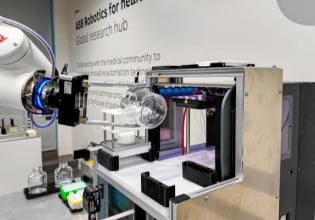R
On July 23, 2003, Ralph Mackiewicz wrote:
> > Your assertions about the failure of commercial enterprises
> > directly contradict the experience of most people. It will be hard
> > to gain traction that way. <
On July 25, 2003, Curt Wuollet wrote:
> Once again, perception. The way things are done is always adequate
> until something better comes along. And I've not opined on the
> failure of commercial enterprises, although there does seem to be
> some shake out going on. It's wonderful for them, high margins,
> zero liability, an upgrade money machine that people can't opt out
> of, and very low expectations from their customer base. Far from
> failing, the vendors have all the advantages. <
I wish the world of commercial software was really like that. My life would be a whole lot easier. Pass some of that over this way! I'm not sure what commercial software company has a business model like this, but I seriously doubt that you would find many (if any) commercial software vendors, or their customers, that would agree that this accurately reflects their relationship.
> If you couldn't use a better way of doing things about now, by all
> means, dance with them that brung ya. If you suspect you could do
> better, try doing things differently. 99% of the companies who had
> a good enough way of doing things are now forgotten. <
Different <> better. Your references to the failure of commercial enterprises brings up something about non-commercial software that I am curious about: success/failure.
One of the reasons, IMHO, why commercial markets have worked so well, is that commercial markets have objective criteria for success/failure. Either there are enough people who see value in what you do, such that you are able to generate a profit on your sales, or there aren't. Period. If your customers decide that you can't deliver value to them, they leave. You end up being sold and dismembered, or bankrupt. There are numerous commercial software companies that failed to live up to customer expectation and failed to deliver value and no longer exist as a result. This is a good thing (getting rid of the non-performers). And, it can happen to any company that doesn't deliver value. Size doesn't matter. All the big bad IA companies are subject to this without mercy. Some of them look to be getting their heads lopped off soon. No external organizational entity has to decide if a company delivers sufficient value, or whether it has a good/bad business model. The decision gets made automatically by the invisible hand of the market by the only people that matter in the
decision: customers and investors.
How is success/failure measured for OSS? Is it an advantage or disadvantage that a theoretically "bad" piece of OSS (one in which very few people see any value) can stay around because it can avoid the invisible (and ruthless) hand of the market while the same from a commercial company would find its way to the chopping block sooner, rather than later?
Regards,
Ralph Mackiewicz
SISCO, Inc.
> > Your assertions about the failure of commercial enterprises
> > directly contradict the experience of most people. It will be hard
> > to gain traction that way. <
On July 25, 2003, Curt Wuollet wrote:
> Once again, perception. The way things are done is always adequate
> until something better comes along. And I've not opined on the
> failure of commercial enterprises, although there does seem to be
> some shake out going on. It's wonderful for them, high margins,
> zero liability, an upgrade money machine that people can't opt out
> of, and very low expectations from their customer base. Far from
> failing, the vendors have all the advantages. <
I wish the world of commercial software was really like that. My life would be a whole lot easier. Pass some of that over this way! I'm not sure what commercial software company has a business model like this, but I seriously doubt that you would find many (if any) commercial software vendors, or their customers, that would agree that this accurately reflects their relationship.
> If you couldn't use a better way of doing things about now, by all
> means, dance with them that brung ya. If you suspect you could do
> better, try doing things differently. 99% of the companies who had
> a good enough way of doing things are now forgotten. <
Different <> better. Your references to the failure of commercial enterprises brings up something about non-commercial software that I am curious about: success/failure.
One of the reasons, IMHO, why commercial markets have worked so well, is that commercial markets have objective criteria for success/failure. Either there are enough people who see value in what you do, such that you are able to generate a profit on your sales, or there aren't. Period. If your customers decide that you can't deliver value to them, they leave. You end up being sold and dismembered, or bankrupt. There are numerous commercial software companies that failed to live up to customer expectation and failed to deliver value and no longer exist as a result. This is a good thing (getting rid of the non-performers). And, it can happen to any company that doesn't deliver value. Size doesn't matter. All the big bad IA companies are subject to this without mercy. Some of them look to be getting their heads lopped off soon. No external organizational entity has to decide if a company delivers sufficient value, or whether it has a good/bad business model. The decision gets made automatically by the invisible hand of the market by the only people that matter in the
decision: customers and investors.
How is success/failure measured for OSS? Is it an advantage or disadvantage that a theoretically "bad" piece of OSS (one in which very few people see any value) can stay around because it can avoid the invisible (and ruthless) hand of the market while the same from a commercial company would find its way to the chopping block sooner, rather than later?
Regards,
Ralph Mackiewicz
SISCO, Inc.






